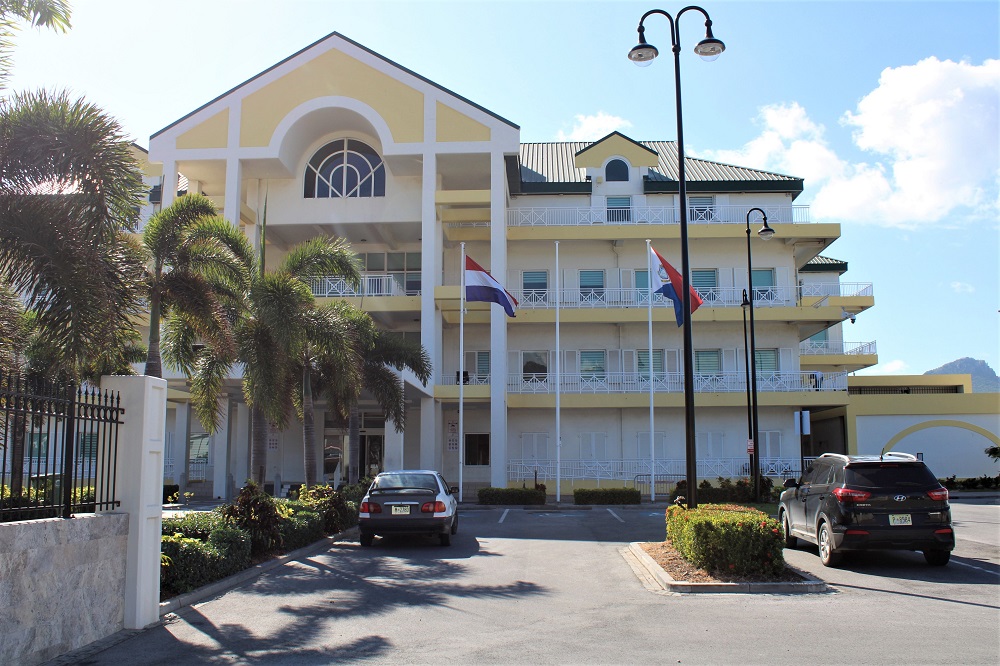DCOMM media policy triggers widespread criticism

PHILIPSBURG -- The Department of Communications has published a media policy that is going to affect journalists who want to attend the weekly press briefing of the Council of Ministers, government press conferences, briefings and other public information events. The policy has attracted widespread criticism.
Journalists will have to possess an approved media pass to attend these events. At the entrance of the press briefing room, members of the Executive Protection Unit will not only check the validity of these passes, they will also subject journalist to a scan with a handheld wand or a walk-through metal detector and inspect the contents of their bags.
That is not what has outraged most criticasters. Their concerns focus among others on introductory remarks stating that accreditation serves as “a necessary pillar in the establishment of a culture of quality.” Accreditation will be “the gatekeeper for assuring that qualitative journalistic reporting is the threshold.”
DCOMM will limit accreditation to journalists “working for established media organizations.” Journalists who “act in a way not consistent with the principles of DCOMM” run the risk of having their accreditation revoked.
DCOMM defines “established media” as “having an existing reputation with the community” and - wait for it - “using primarily accredited journalists who are recognized as such by their peers and the public.”
Accredited journalists “have received specialized training in the field” and have a history of reporting for established media or are established freelance reporters; all this according to DCOMM.
Media passes are not available for non-journalists, lobbyists or consultants. Also excluded are people who are employed by a political party or a political movement, former parliamentarians and ministers and civil servants.
The credentials journalists have to provide when they apply for the media pass include a police record, Chamber of Commerce registration (for the media organization they represent), proof of residency and a valid national identification, like a drivers license or a passport.
That’s not all. DCOMM seems to be bent on keeping some applicants on the outside with this statement: “Accreditation will only be given on proof that the applicant has satisfied all the requirements imposed by this policy and a track record of qualitative journalistic reporting on the news has been established.”
The policy contains a code of conduct that states, for instance, that journalists have to be dressed in “business attire.” They are also required to address ministers by their “appropriate title.” In other words: saying Minister Jacobs will not do. Journalist will have to say: “Honorable Minister Jacobs.”
Rather odd is the rule that journalists are not allowed to “use the name, likeness, or personal attributes of any minister for commercial gains” without the express permission of that minister. Even weirder is the statement that content “filmed, recorded or photographed” during the press briefing remains “the intellectual property of the government.”
The policy contains sanctions against rude, offensive and aggressive conduct by journalists. Offensive language and profanity will have journalist removed from the press briefing and improperly addressing the Council (for instance with a term like ‘you guys’) will result in a verbal warning.
The policy even contains a format for the questions journalists can ask: “Madam Moderator, my question is for the Honorable Prime Minister.”
###
Opinion piece by Hilbert Haar: "Boycott the press briefing"
Related article: Govt’s current Media Policy sets dangerous dictator-like precedent of press censorship, says PFP
LOGIN TO READ MORE... THIS IS A PREMIUM ARTICLE. YOU NEED AT LEAST YEARLY SUBSCRIPTION TO ACCESS THIS ARTICLE.
...
Some articles or portions of articles are restricted exclusively for our registered members and paying subscribers. Please login here to read the rest of this article. If you do not already have a paid subscription, you will need to register here and pay for a subscription first in order to gain access to our website to read articles or contents that are restricted to paid subscribers. You need to buy at least a Day subscription for 75ct to gain access. Or log in first if you are already a registered paying subscriber to this website. Click here to register and support our work with a paid subscription.






















